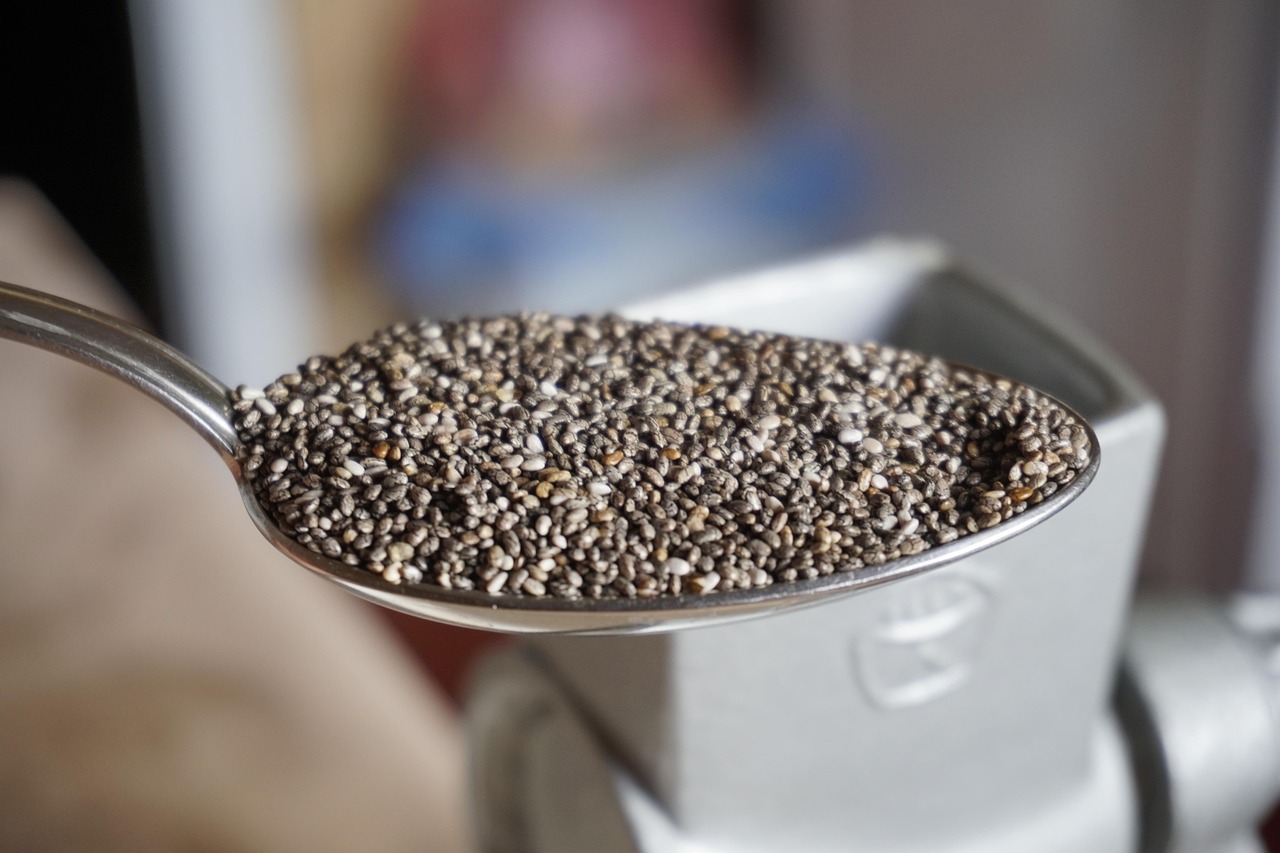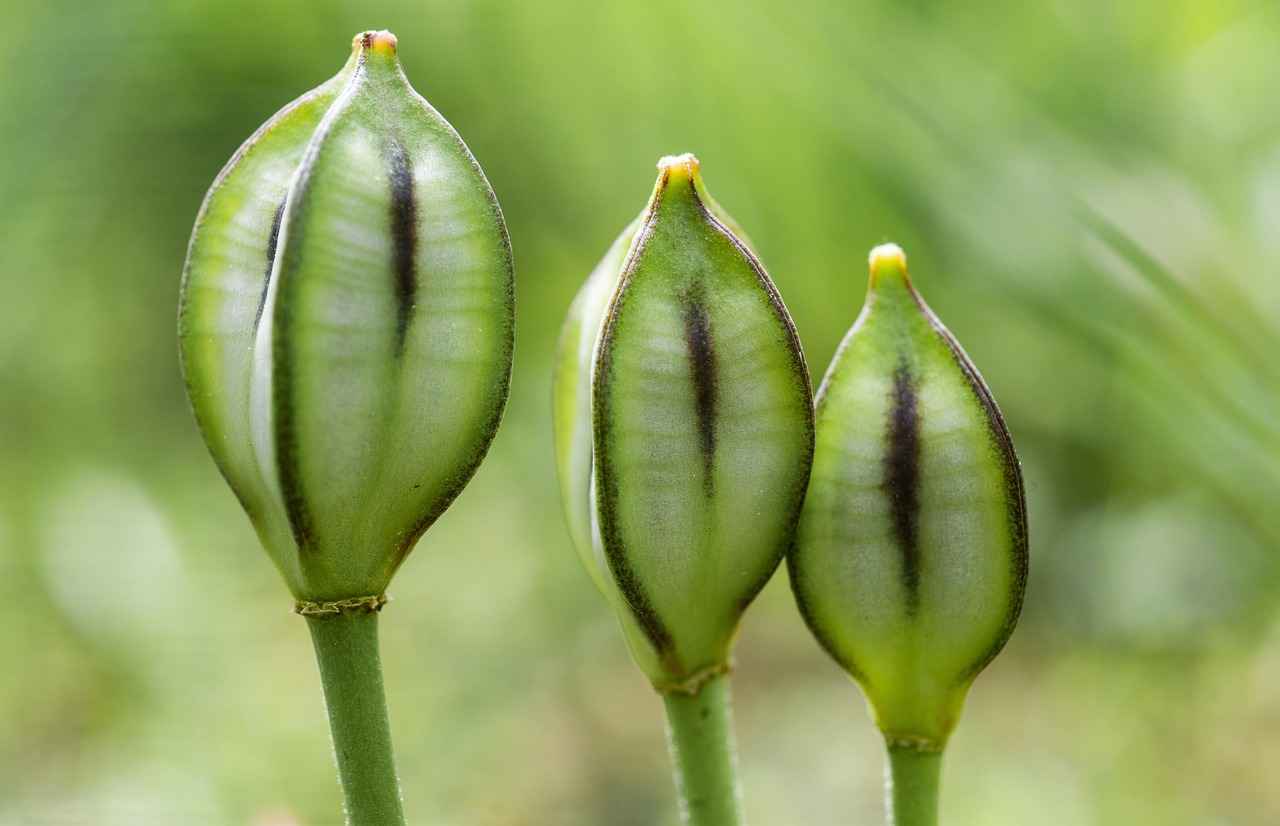Chia seeds, derived from the Salvia hispanica plant, have gained immense popularity as a superfood in recent years. These tiny, nutrient-rich seeds are not only versatile in culinary applications but also packed with numerous health benefits. This article delves into the various advantages of incorporating chia seeds into your diet, supported by scientific insights and practical information.
Chia seeds are small, oval-shaped seeds that come in black or white varieties. They are known for their ability to absorb water, forming a gel-like consistency when soaked. This unique property makes them an excellent addition to smoothies, puddings, and baked goods.
- High in Fiber: Chia seeds contain around 11 grams of fiber per ounce, which is essential for digestive health.
- Rich in Protein: They provide a complete protein source, containing all nine essential amino acids.
- Omega-3 Fatty Acids: Chia seeds are one of the richest plant sources of omega-3s, contributing to heart health.
The high fiber content in chia seeds can promote a feeling of fullness, which may help reduce overall calorie intake. By absorbing liquid and expanding in your stomach, they can help curb hunger and support weight loss efforts.
Chia seeds are known to lower cholesterol levels and reduce inflammation, thanks to their omega-3 fatty acids. Regular consumption may contribute to improved cardiovascular health, making them a heart-friendly addition to your diet.
The soluble fiber in chia seeds aids in digestion by promoting regular bowel movements. This can help prevent constipation and support a healthy gut microbiome.
Chia seeds can help stabilize blood sugar levels due to their high fiber content, which slows down sugar absorption in the bloodstream. This can be particularly beneficial for individuals managing diabetes.
Rich in calcium, magnesium, and phosphorus, chia seeds are excellent for maintaining strong bones. These nutrients are vital for bone density and overall skeletal health.
Chia seeds can absorb up to 12 times their weight in water, making them an effective way to enhance hydration. Including them in your meals can help maintain fluid balance in the body.
Incorporating chia seeds into your diet is simple. Here are a few ideas:
- Add them to smoothies for a nutritional boost.
- Mix them into oatmeal or yogurt for added texture and nutrition.
- Use them in baking, such as in muffins or bread.
- Create chia pudding by soaking them in milk or a dairy-free alternative.
While chia seeds are generally safe for most people, excessive consumption can lead to digestive issues due to their high fiber content. It’s important to consume them in moderation and ensure adequate hydration when incorporating them into your diet.
In summary, chia seeds are a versatile and nutrient-dense addition to any diet. Their numerous health benefits, from supporting heart health to enhancing digestive function, make them worthy of consideration. By understanding their value and incorporating them into your meals, you can enjoy the many advantages they offer.
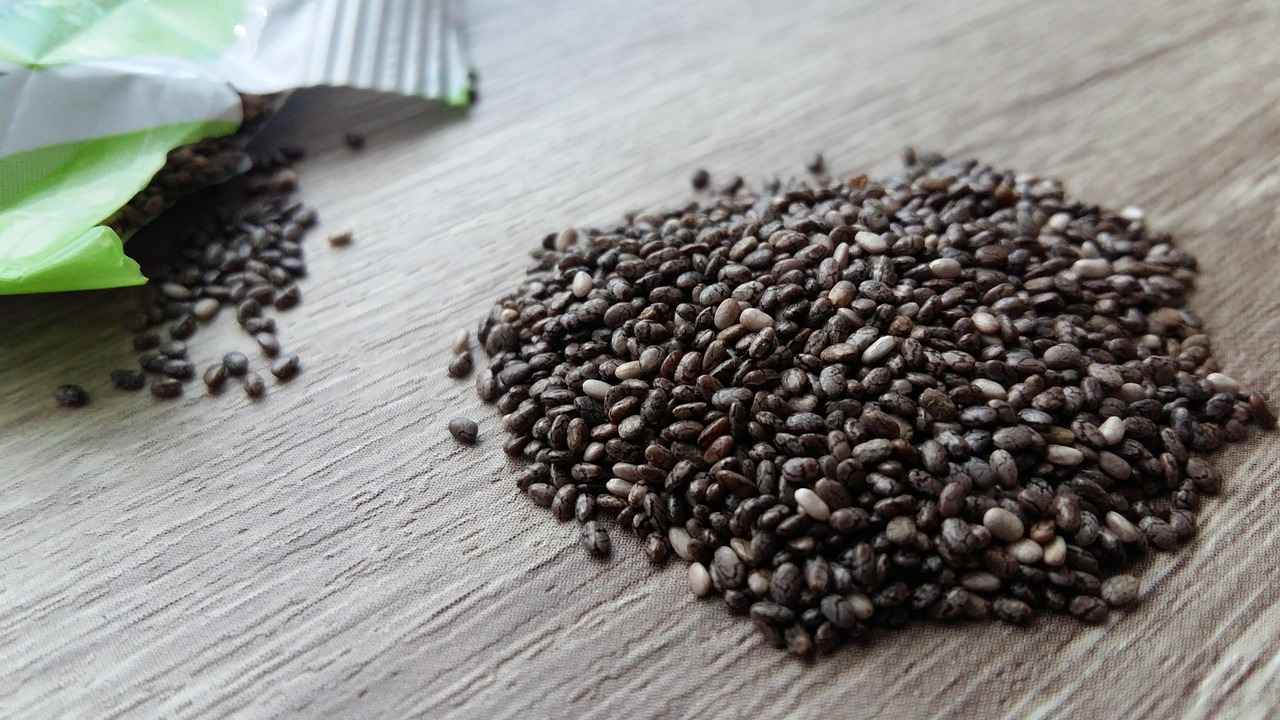
What Are Chia Seeds?
Chia seeds are tiny, nutrient-dense seeds that come from the Salvia hispanica plant, a member of the mint family native to Central America. These small seeds have gained significant popularity in recent years due to their impressive health benefits and versatility in culinary uses. Rich in essential nutrients, chia seeds can serve as a powerful addition to a balanced diet.
Originating from the ancient Aztec and Mayan civilizations, chia seeds were once considered a staple food that provided energy and endurance to warriors. Today, they are celebrated not only for their historical significance but also for their remarkable nutritional profile.
One of the standout features of chia seeds is their exceptional nutritional density. They are packed with a variety of essential nutrients, including:
- Fiber: Chia seeds contain about 10 grams of fiber per ounce, which is beneficial for digestive health.
- Protein: These seeds provide a complete protein source, containing all nine essential amino acids.
- Omega-3 Fatty Acids: Chia seeds are one of the richest plant sources of omega-3s, particularly alpha-linolenic acid (ALA).
- Minerals: They are a good source of calcium, magnesium, and phosphorus, which are vital for bone health.
- Antioxidants: Chia seeds are rich in antioxidants, which help combat free radicals and reduce oxidative stress.
These tiny seeds can absorb up to 12 times their weight in water, forming a gel-like substance when soaked. This property not only aids in hydration but also contributes to the feeling of fullness, making chia seeds an excellent option for those looking to manage their weight.
Chia seeds are incredibly versatile and can be easily incorporated into various dishes. They can be added to smoothies, oatmeal, yogurt, or used as an egg substitute in baking. Their mild, nutty flavor allows them to blend seamlessly into both sweet and savory recipes.
In addition to their culinary uses, chia seeds have been linked to numerous health benefits. Research suggests that they may help improve heart health by reducing cholesterol levels and inflammation. Their high fiber content also promotes digestive health by aiding regular bowel movements and preventing constipation.
Furthermore, chia seeds may help stabilize blood sugar levels, making them a beneficial addition for individuals managing diabetes. Their unique combination of nutrients supports overall health, making them a valuable component of a balanced diet.
In summary, chia seeds are not just a trendy superfood; they are a nutritional powerhouse that offers a wide array of health benefits. With their rich nutrient profile and versatility in cooking, they can easily fit into any diet, enhancing both health and flavor.

How Do Chia Seeds Boost Nutritional Value?
Chia seeds, often hailed as a superfood, are tiny but mighty seeds that pack a powerful nutritional punch. These seeds are derived from the Salvia hispanica plant, native to Mexico and Guatemala, and have been consumed for centuries due to their health benefits. Today, they are recognized for their exceptional nutrient profile, which makes them a valuable addition to any diet.
One of the most notable aspects of chia seeds is their high fiber content. A single ounce (about 28 grams) of chia seeds contains approximately 11 grams of dietary fiber, which is nearly one-third of the recommended daily intake for adults. This fiber is primarily soluble, which means it absorbs water and forms a gel-like substance in the digestive tract. This property not only aids in digestion but also promotes a feeling of fullness, making chia seeds an excellent choice for those looking to manage their weight.
In addition to fiber, chia seeds are an excellent source of plant-based protein. With about 4 grams of protein per ounce, they provide a complete protein source, containing all nine essential amino acids. This makes chia seeds particularly beneficial for vegetarians and vegans who may struggle to obtain sufficient protein from their diets. Incorporating chia seeds into meals can help meet daily protein requirements while adding minimal calories.
Chia seeds are also rich in omega-3 fatty acids, specifically alpha-linolenic acid (ALA). These essential fats are crucial for heart health, as they can help reduce inflammation and lower cholesterol levels. Research indicates that consuming omega-3 fatty acids can support cardiovascular health, making chia seeds an important dietary component for those looking to improve their heart health.
Moreover, chia seeds are a good source of several essential minerals, including calcium, magnesium, and phosphorus. Calcium is vital for maintaining strong bones and teeth, while magnesium plays a role in over 300 biochemical reactions in the body, including muscle and nerve function. Phosphorus is essential for the formation of bones and teeth as well. By incorporating chia seeds into your diet, you can easily enhance your intake of these important nutrients.
Another remarkable feature of chia seeds is their ability to absorb water. They can hold up to 12 times their weight in water, which not only aids in hydration but also helps maintain electrolyte balance in the body. This property can be particularly beneficial for athletes or individuals engaged in intense physical activity, as proper hydration is crucial for optimal performance.
In summary, chia seeds are a nutrient-dense food that can significantly boost the nutritional value of your diet. Their high fiber content, protein, omega-3 fatty acids, and essential minerals make them a powerhouse addition to meals. Whether added to smoothies, yogurt, or baked goods, chia seeds offer a simple and effective way to enhance your overall health and well-being.
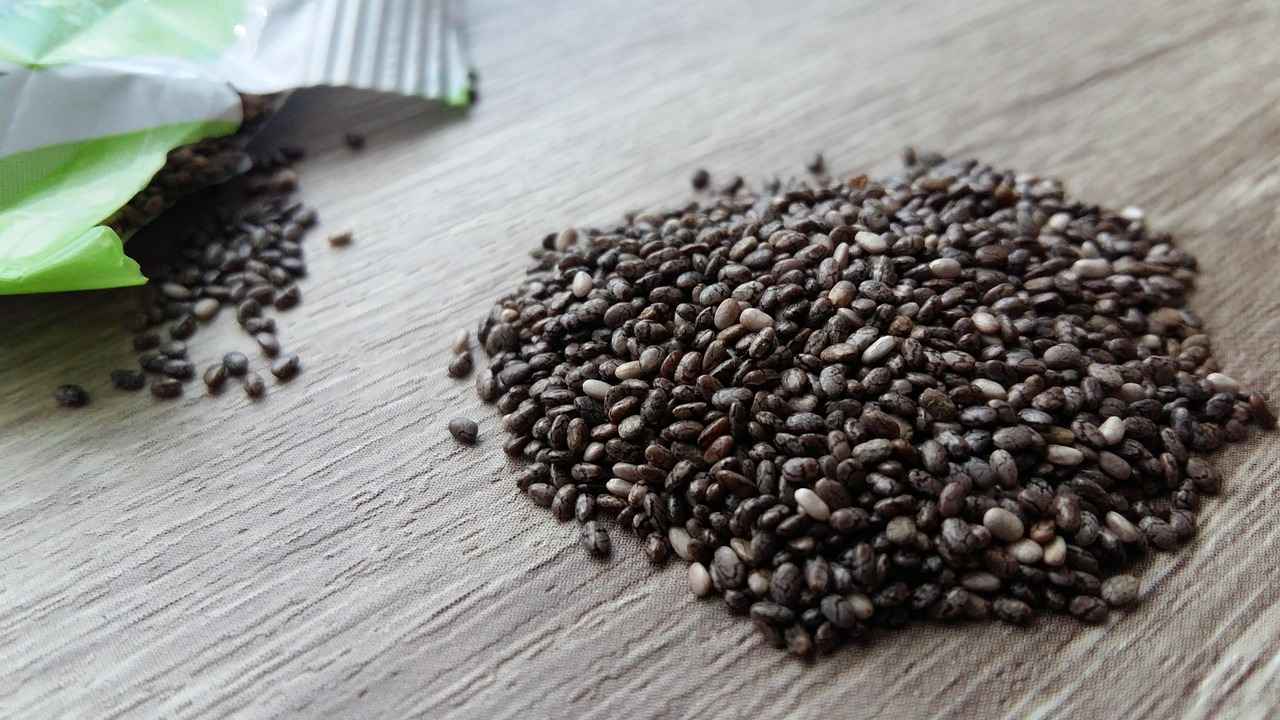
Can Chia Seeds Aid in Weight Management?
Chia seeds have gained popularity as a superfood, particularly among those looking to manage their weight. Their remarkable nutritional profile, especially their high fiber content, plays a pivotal role in this regard. When consumed, chia seeds can absorb significant amounts of water, expanding in the stomach and creating a gel-like substance. This process not only enhances the feeling of fullness but also helps to reduce overall calorie intake.
One of the key benefits of chia seeds is their ability to promote satiety. The soluble fiber in chia seeds slows down digestion, allowing for a more gradual release of energy. This can help curb hunger pangs and prevent overeating. Studies have shown that individuals who incorporate high-fiber foods into their diets tend to consume fewer calories overall, which is crucial for effective weight management.
In addition to their fiber content, chia seeds are also a source of protein. Protein is known to be more satiating than carbohydrates or fats, which means that adding chia seeds to your meals can help you feel fuller for longer. This combination of fiber and protein makes chia seeds an excellent addition to a weight loss diet.
Moreover, chia seeds are low in calories, making them a guilt-free option for those looking to shed pounds. Just two tablespoons of chia seeds contain about 140 calories, yet they pack a nutritional punch with essential nutrients such as omega-3 fatty acids, antioxidants, and various vitamins and minerals.
To incorporate chia seeds into your weight management plan, consider adding them to smoothies, yogurt, or oatmeal. You can also use them as a thickening agent in soups and sauces or sprinkle them on salads for added crunch. The versatility of chia seeds means they can easily fit into any meal, making it simpler to maintain a balanced diet.
However, it is important to consume chia seeds in moderation. While they offer numerous health benefits, excessive intake can lead to digestive discomfort. Always ensure you are drinking enough water when consuming chia seeds, as their high fiber content can absorb water and potentially cause bloating if not hydrated properly.
In conclusion, chia seeds can be a powerful ally in your weight management journey. Their unique combination of fiber, protein, and low calorie count makes them an ideal addition to a balanced diet. By incorporating chia seeds into your meals, you can enhance your feeling of fullness, reduce calorie intake, and ultimately support your weight loss efforts.

Are Chia Seeds Beneficial for Heart Health?
Chia seeds, derived from the Salvia hispanica plant, have gained popularity for their impressive nutritional profile and numerous health benefits. One of the most significant advantages of incorporating chia seeds into your diet is their potential to promote heart health.
Chia seeds are particularly rich in omega-3 fatty acids, which are essential fats that the body cannot produce on its own. These fatty acids play a crucial role in reducing inflammation and lowering cholesterol levels, both of which are vital for maintaining a healthy heart. Studies have shown that omega-3s can help decrease the risk of heart disease by improving lipid profiles and reducing blood pressure.
The soluble fiber found in chia seeds can help lower LDL cholesterol (often referred to as “bad” cholesterol) while increasing HDL cholesterol (“good” cholesterol). This balance is essential for cardiovascular health. Regular consumption of chia seeds has been linked to improved cholesterol levels, which can lead to a reduced risk of heart-related issues.
Chronic inflammation is a significant contributor to various heart diseases. The antioxidant properties of chia seeds, combined with their omega-3 content, can help combat inflammation in the body. By incorporating chia seeds into your diet, you may help mitigate the inflammatory processes that can lead to cardiovascular complications.
Research indicates that the consumption of chia seeds may help lower blood pressure, particularly in individuals with hypertension. The seeds’ high fiber content and omega-3 fatty acids work together to promote better blood vessel function, leading to improved circulation and lower blood pressure levels.
To reap the heart health benefits of chia seeds, it is generally recommended to consume about 1 to 2 tablespoons per day. This amount provides a sufficient dose of omega-3 fatty acids and fiber without overwhelming the digestive system. It is important to start with smaller amounts if you are new to chia seeds, gradually increasing your intake while ensuring you stay well-hydrated.
Incorporating chia seeds into your daily meals is easy due to their versatility. You can add them to smoothies, sprinkle them on salads, mix them into yogurt, or use them in baking. When soaked in water or milk, chia seeds form a gel-like consistency, making them an excellent addition to puddings and desserts. This not only enhances the nutritional value of your meals but also adds a pleasant texture.
While chia seeds are generally safe for most people, it is essential to consume them in moderation. Overconsumption can lead to digestive discomfort, including bloating and gas. Additionally, due to their high fiber content, it is crucial to drink plenty of water when consuming chia seeds to aid digestion.
In conclusion, chia seeds offer a myriad of benefits for heart health, thanks to their rich omega-3 fatty acids, fiber, and antioxidant properties. By incorporating these tiny seeds into your diet, you can take proactive steps toward improving your cardiovascular health.
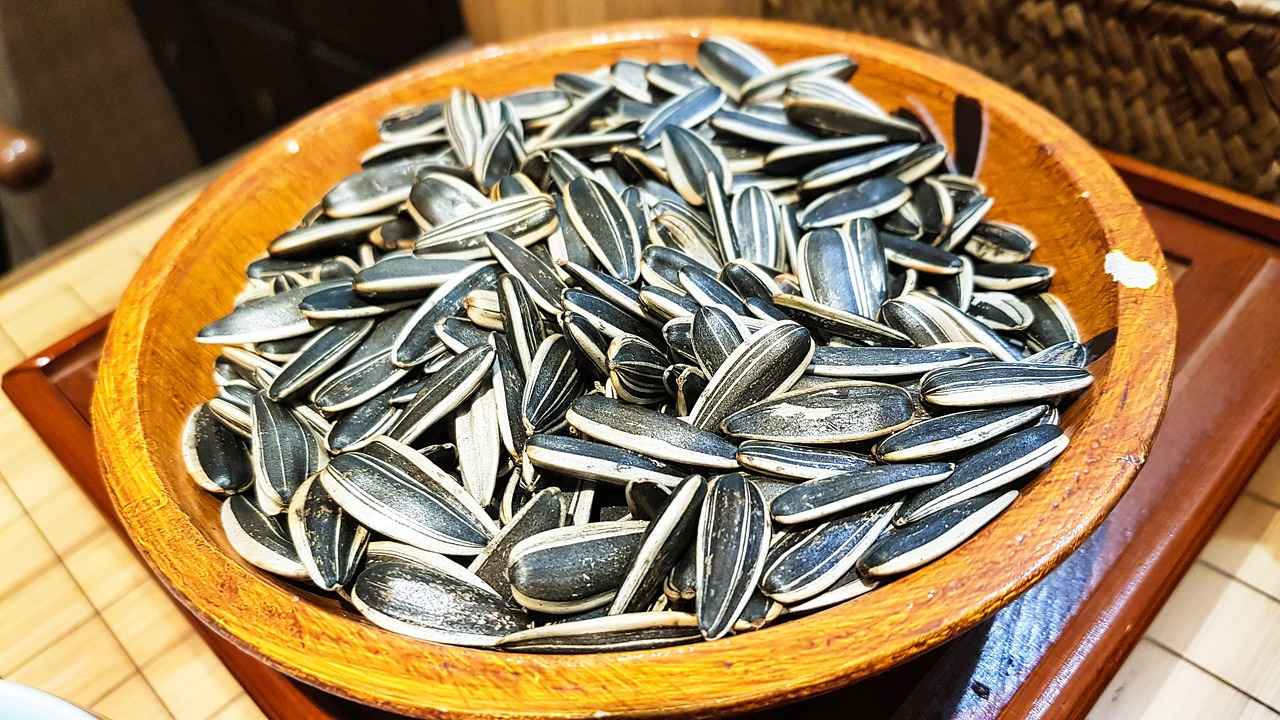
Do Chia Seeds Improve Digestive Health?
Chia seeds have gained popularity as a superfood due to their numerous health benefits. One of the most significant advantages is their impact on digestive health. In this section, we will explore how the fiber content in chia seeds contributes to improved digestion and regular bowel movements, making them an excellent choice for maintaining a healthy gut.
Chia seeds are rich in dietary fiber, which is essential for promoting optimal digestive function. Each ounce of chia seeds contains about 11 grams of fiber, which is approximately 42% of the recommended daily intake for adults. This high fiber content plays a crucial role in:
- Enhancing Bowel Regularity: The soluble fiber in chia seeds absorbs water and forms a gel-like substance in the digestive tract. This gel helps to bulk up stool and promotes regular bowel movements, reducing the risk of constipation.
- Supporting Gut Microbiota: Fiber acts as a prebiotic, feeding the beneficial bacteria in the gut. A healthy gut microbiome is linked to improved digestion, enhanced immunity, and better overall health.
- Alleviating Digestive Disorders: Regular consumption of chia seeds may help alleviate symptoms associated with digestive disorders, such as irritable bowel syndrome (IBS) and bloating, by promoting a balanced digestive process.
Fiber is often overlooked in many diets, yet it plays a vital role in maintaining gut health. It aids in:
- Detoxification: Fiber helps to bind toxins and waste products in the intestines, facilitating their elimination from the body.
- Regulating Blood Sugar: By slowing down the digestion and absorption of carbohydrates, fiber helps to stabilize blood sugar levels, which is particularly beneficial for individuals with diabetes.
- Weight Management: High-fiber foods like chia seeds promote satiety, helping individuals feel fuller for longer and reducing overall calorie intake.
Incorporating chia seeds into your daily meals is simple and versatile. Here are some practical ways to enjoy them:
- Chia Pudding: Mix chia seeds with your choice of milk or yogurt and let them sit overnight to create a delicious pudding.
- Smoothies: Add a tablespoon of chia seeds to your smoothies for an extra fiber boost.
- Baked Goods: Incorporate chia seeds into muffins, bread, or energy bars for added nutrition.
- Salads and Soups: Sprinkle chia seeds on top of salads or stir them into soups for a nutritious crunch.
In conclusion, the fiber in chia seeds not only aids in digestion but also promotes a healthy gut environment. By incorporating this superfood into your diet, you can enjoy the benefits of improved bowel regularity, enhanced gut microbiota, and overall digestive health. With their versatility and ease of use, chia seeds are a fantastic addition to any balanced diet.

How Do Chia Seeds Affect Blood Sugar Levels?
Chia seeds have gained popularity as a superfood, and one of their most significant health benefits is their ability to help stabilize blood sugar levels. This is primarily due to their high fiber content, which plays a crucial role in the digestion and absorption of carbohydrates.
When consumed, chia seeds expand in the stomach, forming a gel-like substance. This process is beneficial for blood sugar management because it slows down the rate at which sugar is absorbed into the bloodstream. As a result, this gradual release of sugar helps prevent spikes and crashes in blood sugar levels, which can be particularly important for individuals with diabetes or those at risk of developing the condition.
In addition to their fiber content, chia seeds are rich in omega-3 fatty acids, protein, and various essential nutrients. These components work synergistically to promote overall metabolic health. The protein in chia seeds can also contribute to a feeling of fullness, which may help with weight management—a factor that is closely linked to blood sugar control.
Studies have shown that incorporating chia seeds into the diet can lead to improved glycemic control. For instance, a study published in the Journal of Nutritional Biochemistry found that participants who consumed chia seeds experienced a significant reduction in blood sugar levels after meals compared to those who did not. This finding highlights the potential of chia seeds as a natural means to manage blood sugar levels.
Furthermore, the antioxidant properties of chia seeds may also play a role in maintaining healthy blood sugar levels. Antioxidants help combat oxidative stress, which can contribute to insulin resistance—a key factor in blood sugar dysregulation. By incorporating chia seeds into a balanced diet, individuals may benefit from both their nutritional value and their protective effects against metabolic disorders.
To effectively incorporate chia seeds into your diet for blood sugar stabilization, consider adding them to various meals. They can be sprinkled on top of yogurt, blended into smoothies, or mixed into oatmeal. Additionally, chia seeds can be used as a thickening agent in recipes, making them a versatile ingredient in both sweet and savory dishes.
It is important to note that while chia seeds can be beneficial, they should be consumed in moderation. Overconsumption may lead to digestive discomfort, especially if not paired with adequate hydration. As with any dietary change, it is advisable to consult with a healthcare professional, particularly for those with existing health conditions.
In summary, chia seeds are a powerhouse of nutrition that can significantly impact blood sugar levels. Their high fiber content, coupled with other beneficial nutrients, makes them an excellent choice for anyone looking to maintain stable blood sugar levels. By incorporating chia seeds into your daily diet, you may enhance your overall health and well-being.
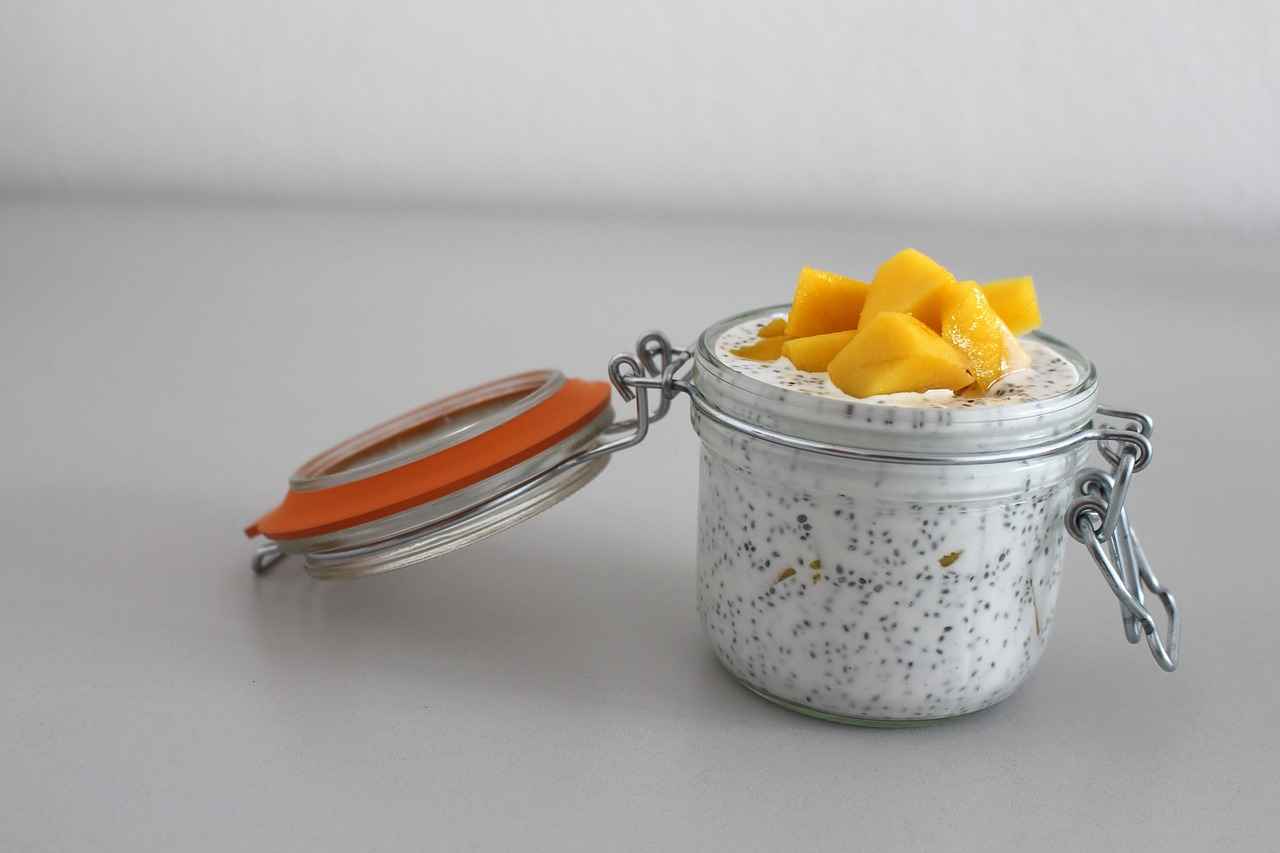
Can Chia Seeds Enhance Bone Health?
Chia seeds have gained popularity as a superfood, and for good reason. Among their numerous health benefits, one of the most significant is their ability to enhance bone health. This article delves into how chia seeds contribute to maintaining strong and healthy bones, supported by scientific research and nutritional insights.
Chia seeds are a remarkable source of essential minerals that play a crucial role in bone health. They are rich in calcium, magnesium, and phosphorus, all of which are vital for maintaining bone density and strength. Here’s how each nutrient contributes:
- Calcium: This mineral is fundamental for bone structure and strength. Chia seeds provide approximately 18% of the daily recommended intake of calcium in just one ounce.
- Magnesium: Magnesium helps to regulate calcium levels in the body and is essential for the formation of bone. A deficiency can lead to osteoporosis.
- Phosphorus: This mineral works alongside calcium to build strong bones and teeth. Chia seeds contain a significant amount of phosphorus, contributing to overall bone health.
Many people associate dairy products as the primary source of calcium. However, for those who are lactose intolerant or follow a vegan diet, chia seeds offer an excellent alternative. They are not only high in calcium but also come with the added benefits of fiber and omega-3 fatty acids, making them a more comprehensive nutritional choice.
Osteoporosis is a condition characterized by weak and brittle bones, often leading to fractures. Research indicates that adequate intake of calcium and magnesium is essential for preventing osteoporosis. By incorporating chia seeds into your diet, you can increase your intake of these minerals significantly. Regular consumption of chia seeds, combined with a balanced diet and exercise, may help reduce the risk of developing this condition.
Adding chia seeds to your meals is simple and versatile. Here are some practical ways to include them:
- In smoothies: Blend chia seeds into your favorite smoothie for a nutrient boost.
- As a topping: Sprinkle chia seeds on yogurt, oatmeal, or salads for added crunch and nutrition.
- In baked goods: Substitute chia seeds for eggs in recipes or add them to muffins and breads.
While chia seeds are generally safe for most individuals, consuming them in excessive amounts can lead to digestive discomfort. It’s important to hydrate properly when consuming chia seeds, as they absorb a significant amount of water. Moderation is key to enjoying their health benefits without adverse effects.
In conclusion, chia seeds are a nutrient-packed powerhouse that can significantly enhance bone health. Their rich content of calcium, magnesium, and phosphorus makes them an excellent addition to any diet, particularly for those looking to improve their bone density and overall health. By incorporating chia seeds into your daily meals, you can enjoy their numerous benefits while promoting strong and healthy bones.

What Role Do Chia Seeds Play in Hydration?
Chia seeds, often hailed as a superfood, play a significant role in maintaining hydration due to their remarkable ability to absorb water. This unique property is linked to their high soluble fiber content, which allows them to swell and form a gel-like consistency when exposed to liquids. In fact, chia seeds can absorb up to 12 times their weight in water, making them an excellent choice for those looking to enhance their hydration levels.
When chia seeds are consumed, they not only help in retaining moisture but also contribute to a feeling of fullness. This is particularly beneficial for individuals who are trying to manage their weight or those who engage in regular physical activity. By keeping you hydrated, chia seeds support various bodily functions, including digestion, metabolism, and nutrient absorption.
Once chia seeds are ingested, they absorb water and expand in the stomach, which can help to slow down the rate at which food is digested. This process not only aids in hydration but also helps to stabilize blood sugar levels, preventing spikes and crashes that can lead to cravings and overeating. Additionally, the gel-like substance formed by the chia seeds can help to regulate bowel movements, promoting overall digestive health.
Staying hydrated is crucial for maintaining optimal health. Water is essential for nearly every function in the body, including:
- Regulating body temperature
- Transporting nutrients
- Removing waste products
- Supporting cognitive function
Dehydration can lead to fatigue, headaches, and decreased physical performance, making it vital to consume sufficient fluids throughout the day. Incorporating chia seeds into your diet can be an effective strategy to enhance your hydration, especially for those who may struggle to drink enough water.
Incorporating chia seeds into your daily routine is simple and versatile. Here are some practical ways to add them to your diet:
- Chia Pudding: Mix chia seeds with almond milk or yogurt, add sweeteners and fruits, and let it sit overnight for a delicious breakfast.
- Smoothies: Blend chia seeds into your favorite smoothie for an added nutrient boost and hydration.
- Salads: Sprinkle chia seeds on top of salads for a crunchy texture and hydration benefits.
- Baking: Add chia seeds to baked goods like muffins or bread for enhanced nutrition.
When using chia seeds, it’s essential to soak them in water or another liquid before consumption. This allows them to expand and maximize their hydrating properties. A common ratio is to use one part chia seeds to six parts liquid, allowing them to sit for about 30 minutes to an hour.
For athletes and fitness enthusiasts, chia seeds can be particularly beneficial. Consuming chia seeds before or during exercise can help maintain hydration levels, providing the necessary energy and endurance for prolonged physical activity. Their ability to absorb water can also help prevent dehydration during workouts, making them a smart addition to any athlete’s diet.
In summary, chia seeds are a powerful ally in promoting hydration and overall health. Their unique ability to absorb water and form a gel-like substance not only aids in hydration but also supports various bodily functions. By incorporating chia seeds into your diet, you can enhance your hydration levels and enjoy the numerous health benefits they offer.

How Can You Incorporate Chia Seeds into Your Diet?
Chia seeds are an incredibly versatile ingredient that can be seamlessly integrated into your daily meals. Their unique texture and ability to absorb liquid make them a popular choice for various dishes. Here are some creative ways to include chia seeds in your diet:
- Smoothies: Adding chia seeds to your smoothies not only enhances the nutritional profile but also provides a satisfying thickness. Simply mix a tablespoon of chia seeds into your favorite fruit and vegetable smoothie for an energy boost.
- Oatmeal: Stirring chia seeds into your morning oatmeal can elevate its health benefits. They add a delightful crunch and increase the fiber content, promoting a feeling of fullness that lasts longer throughout the day.
- Salads: Chia seeds can be sprinkled over salads for added texture and nutrition. They pair well with leafy greens, nuts, and vinaigrettes, making your salad not only more satisfying but also more nutritious.
- Baked Goods: Incorporating chia seeds into baked goods like muffins, bread, and pancakes is an excellent way to boost their health benefits. They can replace eggs in recipes by creating a gel-like consistency when mixed with water, making them a great option for vegan baking.
- Chia Pudding: A popular way to enjoy chia seeds is by making chia pudding. Combine chia seeds with your choice of milk (dairy or plant-based), sweeten to taste, and let it sit overnight in the refrigerator. The result is a creamy, nutritious pudding that can be topped with fruits, nuts, or granola.
- Soups and Sauces: You can also add chia seeds to soups and sauces as a thickening agent. They will absorb liquid and create a more substantial texture without altering the flavor of your dish.
- Energy Bars: Homemade energy bars are another great way to utilize chia seeds. Combine them with nuts, dried fruits, and a sweetener, then press the mixture into a pan and refrigerate. Cut into bars for a healthy snack on the go.
When incorporating chia seeds into your diet, it’s important to start with small amounts, especially if you are not used to high-fiber foods. A tablespoon or two per day is often sufficient. Additionally, make sure to drink plenty of water, as chia seeds absorb a significant amount of liquid, which can help with hydration and digestion.
In summary, chia seeds are not only nutrient-dense but also incredibly easy to add to a variety of meals. Whether you prefer them in smoothies, baked goods, or salads, there are countless ways to enjoy their health benefits. By experimenting with different recipes and combinations, you can find the perfect way to include these tiny seeds in your diet.

Are There Any Risks or Side Effects of Chia Seeds?
Chia seeds have gained immense popularity due to their numerous health benefits, but like any food, they come with certain considerations. Understanding the potential risks and side effects associated with chia seeds is essential for anyone looking to incorporate them into their diet.
While chia seeds are generally safe for most people, excessive consumption can lead to digestive discomfort. This is primarily due to their high fiber content. When consumed in large quantities, chia seeds can cause bloating, gas, and even constipation. It’s crucial to introduce them gradually into your diet to allow your digestive system to adjust.
Chia seeds have the ability to absorb up to 12 times their weight in water. This characteristic can be beneficial for hydration, but it also means that if you consume them without adequate fluids, they may expand in your digestive tract, leading to discomfort. To avoid this, ensure you hydrate properly when consuming chia seeds, especially if you are eating them dry.
Another important consideration is the potential for chia seeds to interact with certain medications. Due to their ability to lower blood pressure and blood sugar levels, chia seeds may enhance the effects of medications taken for these conditions. If you are on medication for diabetes or hypertension, it is advisable to consult with a healthcare professional before adding chia seeds to your diet.
Although rare, some individuals may experience allergic reactions to chia seeds. Symptoms can include itching, swelling, or difficulty breathing. If you have a history of allergies to similar seeds, such as flaxseeds or sesame seeds, it’s best to proceed with caution and consult a healthcare provider.
To enjoy the benefits of chia seeds while minimizing the risk of side effects, it’s essential to consume them in moderation. The recommended serving size is typically around 1 to 2 tablespoons per day. This amount provides sufficient nutrients without overwhelming your digestive system.
Preparation can also play a role in mitigating potential side effects. Soaking chia seeds in water or adding them to smoothies can help them expand before consumption, making them easier to digest. The gel-like consistency they develop when soaked can help prevent digestive issues and enhance their nutritional benefits.
Pregnant and nursing women should be particularly cautious with chia seed consumption. While they are a good source of nutrients, the high fiber content may lead to digestive issues if consumed in excess. It’s advisable to consult with a healthcare provider to determine the appropriate amount for your individual needs.
In summary, while chia seeds are a nutritious addition to many diets, it’s important to consume them mindfully. By understanding the potential risks and following best practices for their consumption, you can enjoy the health benefits of chia seeds without adverse effects.
Frequently Asked Questions
- What are chia seeds?
Chia seeds are tiny, nutrient-packed seeds from the Salvia hispanica plant. They’re celebrated for their health benefits and can be easily added to a variety of dishes.
- How can chia seeds help with weight management?
Thanks to their high fiber content, chia seeds can help you feel full longer, which may lead to reduced calorie intake and support your weight loss journey.
- Are chia seeds good for heart health?
Absolutely! Chia seeds are rich in omega-3 fatty acids, which can help lower cholesterol levels and reduce inflammation, promoting a healthier heart.
- Can chia seeds improve digestive health?
Yes! The fiber in chia seeds aids digestion and helps maintain regular bowel movements, making them a fantastic choice for gut health.
- How do chia seeds affect blood sugar levels?
Chia seeds can help stabilize blood sugar levels by slowing down the absorption of sugar in the bloodstream, thanks to their fiber content.
- How can I incorporate chia seeds into my diet?
You can add chia seeds to smoothies, oatmeal, salads, or even baked goods. Their versatility makes it super easy to include them in your daily meals!
- Are there any risks associated with chia seeds?
While generally safe, consuming too many chia seeds can lead to digestive issues. It’s best to enjoy them in moderation and drink plenty of water.
